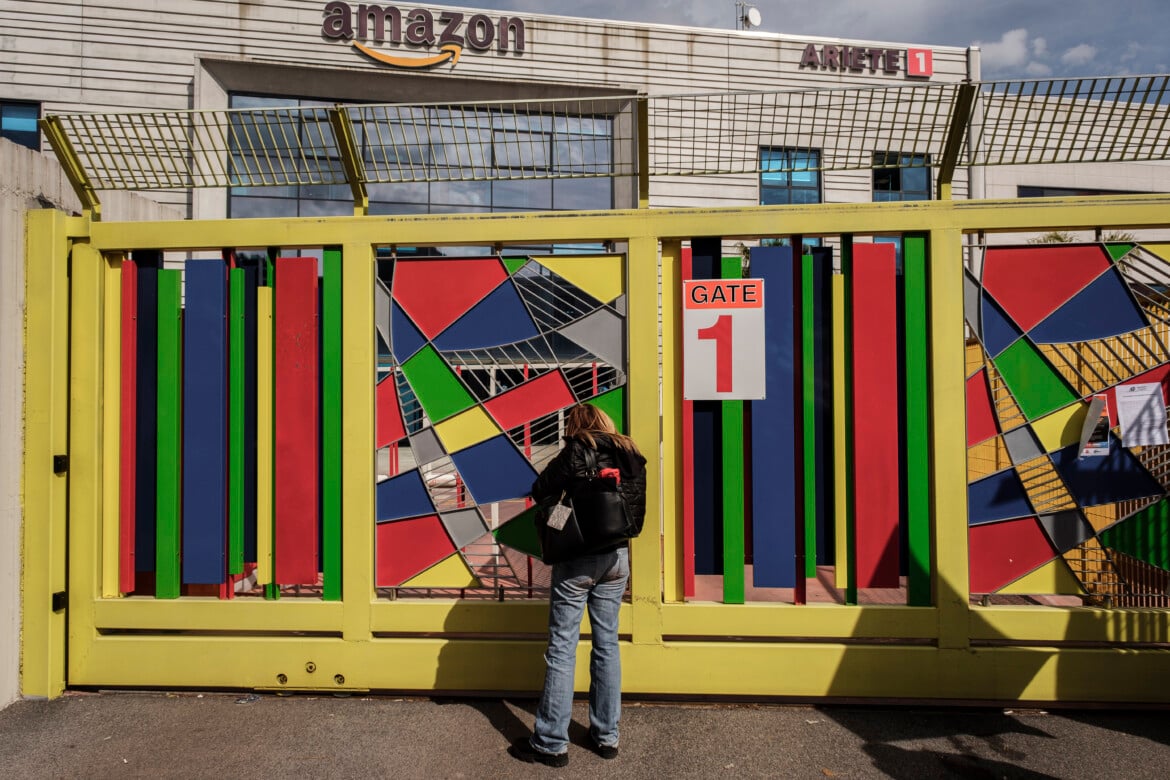Reportage
A government official met with Amazon in Milan over tax bill settlement
The question remains: why did a government representative attend such a meeting? At the Milan courthouse, no one can give an explanation.

Why did Deputy Economy Minister Maurizio Leo go to the Milan courthouse on September 10 to discuss Amazon’s tax liabilities? The news, reported on Wednesday in an explosive 40-line article in Corriere della Sera, was only met with a deafening silence in the public debate, but Leo’s appearance remains unusual, to say the least. Also attending the meeting were the director of the Revenue Agency, Vincenzo Carbone; the Milan prosecutor, Marcello Viola; and his deputies Tiziana Siciliano and Elio Ramondini.
It was in this meeting that the Revenue Agency set out its position: of the alleged €1.2 billion in tax evasion, Amazon would only need to pay half to settle the matter: €300 million immediately for the 2019 tax year, and another €300 million by the end of the year for 2020 and 2021. One small detail: this offer ignores the final calculation by the Monza tax police, which assesses the amount owed by Amazon at €3 billion, including penalties and interest. The reduced assessment effectively denies the cornerstone of the Milan prosecutor's investigation, which has targeted three managers for the crime of fraudulent tax declarations. The prosecutor's office, for its part, will not object to the Revenue Agency’s decisions but has no intention of dropping its criminal investigation, which will proceed regardless.
The question remains: why did a government representative attend such a meeting? At the Milan courthouse, no one can give an explanation. In extremely cautious tones, there is talk of an “act of institutional courtesy,” and investigators were reportedly happy to explain to Leo and Carbone just how Amazon operates, in case they weren’t aware. Milan, after all, has a certain expertise in the matter; former prosecutor Francesco Greco dedicated significant energy to actions against the “web giants,” securing several payments that were otherwise unlikely to ever happen, including €310 million from Apple and €779 million from Airbnb. These were fractions of the total taxes owed, but windfalls that the state would have likely never collected otherwise. This time, with Amazon, the situation is different: whereas in Greco’s day, lawyers would quickly come forward to settle, this time no one has, the investigation has moved forward, and suspects have been formally named.
But legal matters aside, the fundamental question about the September 10 meeting remains: what was the Deputy Economy Minister doing there? He certainly had not been summoned and went to the court at his own initiative. Why? No one can say. “Maybe he wanted to see the building; after all, the meeting was held in Borrelli's old office...,” one source told us [translator’s note: referencing a key prosecutor from the historic “Clean Hands” anti-corruption investigations of the 1990s]. The notion of a deputy minister deciding, on a quiet Wednesday, to go sightsee the temple of Italian justice where “Operation Clean Hands” once played out has a certain romantic appeal, but it remains implausible.
Contacted repeatedly by il manifesto, the Ministry of Economy declined to provide an answer. Of the three undersecretaries, only one responded, claiming to know nothing. Meanwhile, aides to Minister Giancarlo Giorgetti nervously deflected all responsibility onto the deputy minister himself – who is Prime Minister Meloni’s man at the ministry and the architect of the Fratelli d’Italia economic program. “Don’t ask us about anything Leo has done, also as a matter of professional courtesy,” was the message from Giorgetti’s offices. Whether the deputy minister’s trip was coordinated with the minister or not remains an open question. “We are not answering that question,” they added quickly.
In the absence of any denials, the most credible scenario is that the administration wanted to be “more Catholic than the Pope” – the “Pope” in question, of course, being U.S. President Donald Trump. The tycoon has repeatedly threatened the European Union and its member states with retaliation if American Big Tech companies were targeted with new taxes. The last time was on August 26, just days after the EU signed a restrictive trade agreement with the U.S. “As President, I will stand up to countries that attack our incredible American technology companies. Digital taxes are all designed to harm or discriminate against American tech,” he wrote on Truth Social. In his crosshairs are three European regulations: the Digital Services Act, the Digital Markets Act, and the AI Act.
More recently, on September 5, the EU fined Google €2.95 billion for violating antitrust law. This, too, sparked Trump’s anger: “We cannot allow this to happen to brilliant American ingenuity, and if it does, I will be forced to initiate a proceeding under Section 301 to reverse the unjust penalties levied against these American companies” – which is, of course, a reference to further tariffs. This is not the first time that VAT payments have become the focus of a dispute between Italian tax authorities and U.S. tech companies. In December, the Milan prosecutor’s office closed an investigation into Meta, alleging €887 million in unpaid VAT. In March, it opened a case against X for €12.5 million. While it’s very unlikely that Trump himself is aware of what is happening in the corridors of the Milan courthouse, it is much easier to imagine that his “go-betweens” are.
Originally published at https://ilmanifesto.it/sconti-fiscali-e-cortesie-il-mef-in-procura-per-amazon on 2025-09-18
